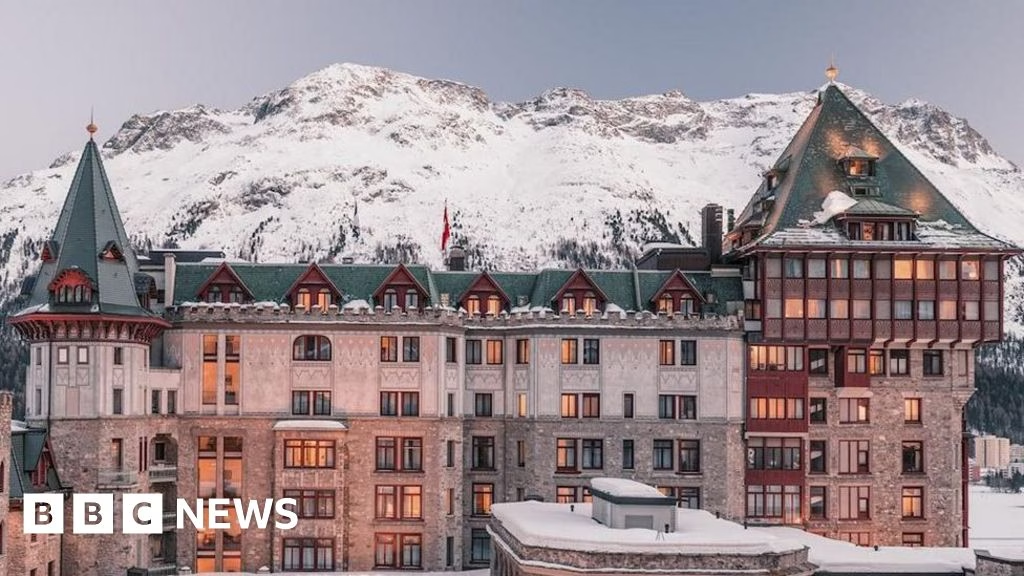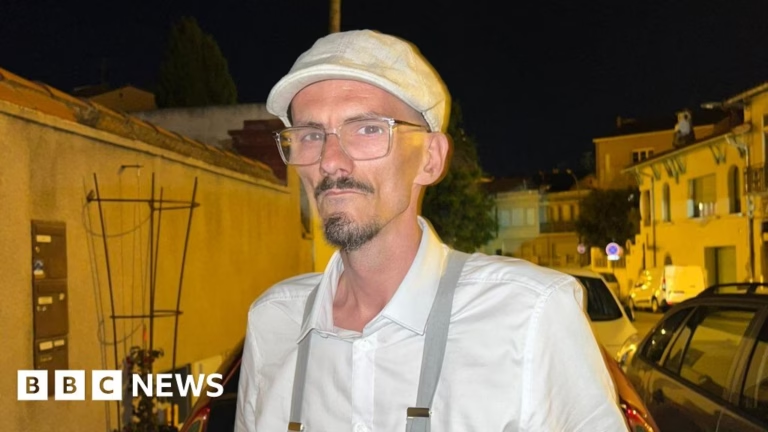<
div id=””>
(195a7090-f4ff-11ef-9808-4d9b058d1a40).webp) Badrutt’s Palace Hotel
Badrutt’s Palace HotelThe world is a very insecure place right now – conflict, climate change, and fears of recession dominate the headlines. But for some people, things are going rather well – the wealthy.
Despite the global turmoil, the number of billionaires in the world is growing and the personal wealth of each of them is increasing too.
So what to do with all that money? The growing trend for the ultimate luxury experience is a clue as to what the very rich are doing with their cash. For the tourist industry in particular, it’s an opportunity.
In Switzerland, which has long cultivated a reputation for understated luxury, the number of five-star hotels is increasing faster than any other category. Many of them were built in the early 20th century – grand belle epoque palaces serving a then emerging class of privileged, primarily English tourists.
Today, renovated to the highest standards, those hotels leave no guest’s wish unmet. There are luxury spas, gourmet restaurants, and designer suites with panoramic views of the alps. Some offer “ski butlers” to ferry guests to and from the slopes, carry the skis, and even help put on their boots.
Key markets are the US, the Gulf states, China and South East Asia. American guests in particular, Swiss hoteliers say, expect the full five-star treatment, including 24-hour room service, so that they can order food in the middle of the night.
Meanwhile, China and India are emerging markets, where the first groups to travel from those two countries are among the wealthiest. Switzerland is very keen to get in at the start of that trend.
But the five-star offer comes with a hefty price tag, so where does that leave those who are not billionaires? Markus Berger of Switzerland Tourism says the strategy is not to focus solely on high-end guests, but to take a hard-headed look at the figures.
Stays at Swiss five-star hotels make up around 8% of all overnights, but the guests in them contribute at least 25% of Switzerland’s total revenue from tourism.
“The numbers speak for themselves,” says Mr Berger. “The high economic significance justifies a commitment to luxury guests.”
What’s more, he adds, Switzerland, with its high-wage, high-price economy, cannot compete with less expensive neighbours, particularly now that the Swiss franc is so strong.
“Switzerland has never tried to compete over prices,” Mr Berger explains. “There is always somewhere cheaper.”
(d3ff/live)(b7fbe030-f4ff-11ef-9808-4d9b058d1a40).webp) Switzerland Tourism
Switzerland TourismInstead, the focus is on quality, service, and added value, like those ski butlers. In exchange, guests who come to five-star hotels also contribute a good deal to the rest of the economy, spending lavishly in the Michelin-starred restaurants and boutique shops that are also becoming a feature in a number of Swiss alpine resorts.
But it’s not an entirely win-win situation. In some of Switzerland’s most famous up-market resorts, like St Moritz or Zermatt, there are long-standing concerns that the focus on luxury is pricing locals out of the market.
A common challenge is finding accommodation for the hundreds of hotel and restaurant staff needed to provide the five-star service.
They sometimes find themselves commuting, late at night when the cocktail bars and restaurants have finally closed, long journeys to other villages where the accommodation is affordable on a waiter’s salary.
Monika Bandi, who leads the Tourism Research Unit at Bern University’s Centre for Regional Development, sees Switzerland’s pitch to high-end guests as a fine balancing act. It’s about “quantity versus quality”, she says.
More tourists aren’t necessarily better, she believes. Instead, higher spending by existing numbers can be positive.
And, she adds, Switzerland needs to watch out for the “tipping point, where the destinations really lose their character”.
Questions about a tipping point are currently being asked in the resort of Wengen, world famous for its Lauberhorn ski race, and its decades long connection with British skiers – the much-loved “Down Hill Only” ski club celebrated its 100th anniversary this year.
And also this year, Wengen is opening its first ever five-star hotel, and there are plans too for a five-star complex of serviced “hotel apartments”. They will be sold to wealthy tourists who want a luxury holiday home in the Alps, and they can also be rented out when the owners are absent.
<
div data-component=”image-block” class=”sc-18fde0d6-0 jFCfG”>
<
div data-testid=”image” class=”sc-a34861b-1 jxzoZC”><img sizes=”(min-width: 1280px) 50vw, (min-width: 1008px) 66vw, 96vw” srcset=”https://ichef.bbci.co.uk/news(240/cpsprodpb)(cf46/live)(706eeec0-f503-11ef-9808-4d9b058d1a40).webp 240w,https://ichef.bbci.co.uk/news(320/cpsprodpb)(cf46/live)(706eeec0-f503-11ef-9808-4d9b058d1a40).webp 320w,https://ichef.bbci.co.uk/news(480/cpsprodpb)(cf46/live)(706eeec0-f5
Source: https://www.bbc.com/news/articles/cq8yy09we1eo









